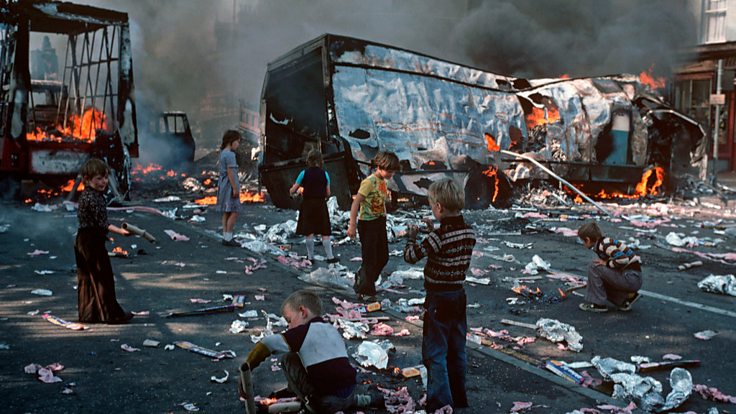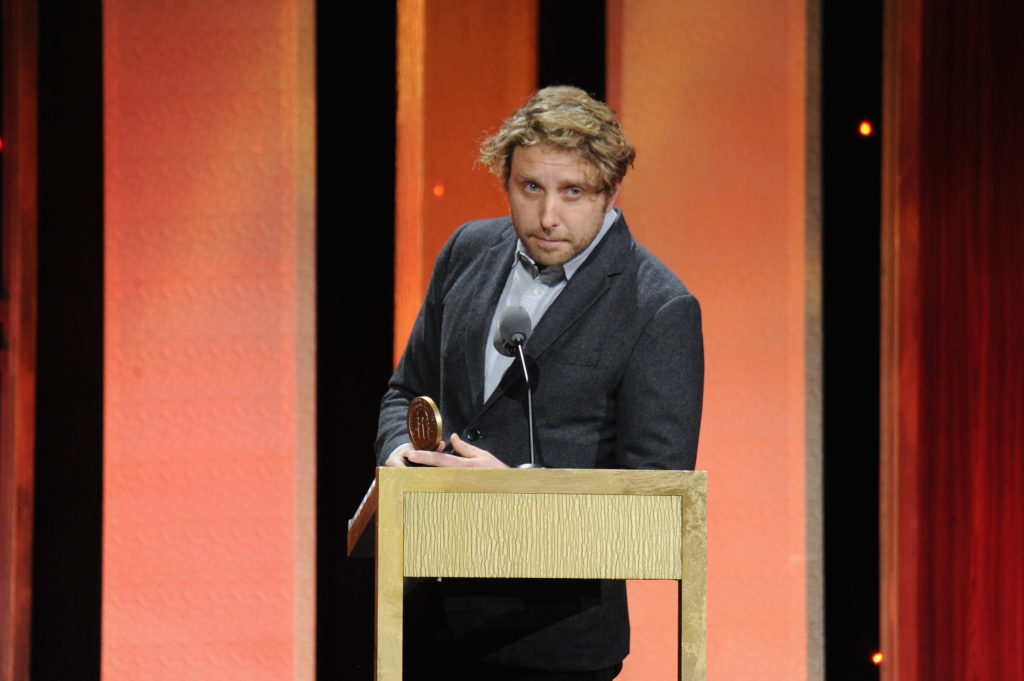A NEW BBC series tells the story of the people and communities who faced violence every day as they lived through the Troubles in Northern Ireland.
Set to air on BBC Two, BBC Northern Ireland and BBC iPlayer on Monday, May 22, Once Upon A Time In Northern Ireland combines archive footage with personal accounts to give a stark picture of what life was like for those living on both sides of the conflict.
The five-part documentary is directed by the award-winning documentary filmmaker James Bluemel, who created Once Upon a Time in Iraq for the BBC in 2020.
This week he told us what we can expect from his Northern Irish series…
Once Upon a Time in Iraq was a huge success when it aired in 2020. Why did you choose Northern Ireland for your next project?
The civil war was a particularly cruel time in Iraq.
Hearing stories from Iraqis of how their friendships, families and neighbourhoods were ripped apart by sectarian killings made me think about a sectarian conflict which was much nearer to home.
Northern Ireland was always on the news when I was young - bombs, violence, murder and pain seemed to be ever present there.
As an adult, I might have understood the broad politics behind the events, but after my conversations with Iraqis, I realised I had no idea how anyone in Northern Ireland really felt about what it was like living through that turbulent history.
I had been exposed to the politics of the conflict, but I had not heard the human stories from those that were there.
Just after lockdown restrictions had lifted, I found myself in Belfast, meeting the first contributors that would feature in a new documentary, Once Upon A Time In Northern Ireland.
Did you have any concerns about asking people to conjure their memories of The Troubles?
I was concerned that I would be asking people to remember things that may have become cemented in their minds.
For some, the events we would be talking about were over 50 years ago, and over time, memories can become staged in their retelling. I needn’t have worried.
One of the first interviews we did was with Kate Nash, whose brother, Willie Nash was one of people shot dead by the paratroopers on January 30, 1972 – on Bloody Sunday.
As we talked at length about her life growing up, I felt that memories that had been neglected began to resurface.
By the time we arrived at that fateful day in 1972, Kate spoke eloquently, with genuine emotion and anger as she recalled what happened and how she felt.
Any concern I had about these recollections feeling rehearsed vanished as Kate sat in front of me, processing her feelings, and conjuring up buried emotions.
 The BBC's Once Upon a Time in Northern Ireland starts on Monday, May 22
The BBC's Once Upon a Time in Northern Ireland starts on Monday, May 22The Troubles is a subject that has been well documented. Why is this series different?
Everyone we spoke to has first-hand accounts of the events they recall, and some expressed to us that now, with the passing of time, they are able to speak more openly and freely than before.
While history is made up of big stories, it is understood best when we can hear the small, personal details.
Michael McConville remembering the day his mother, Jean, was taken away and murdered by the IRA felt like an important historical story to include in the series.
The IRA denied murdering her for over 30 years and they only revealed the whereabouts of her body in 2006.
The trauma of this event on Michael is evident, not just in the way he talks but also the way he holds himself, his body displays the pain he feels.
The trauma of those years can be consuming and was present in nearly everyone I interviewed.
Later however, when Michael’s 26-year-old daughter Bronagh, sat in the chair to talk about how that event, that happened over 50 years ago, has impacted her life, I discovered something that I hadn’t understood before.
Through Bronagh, Jean McConville stopped being a woman confined to the past, only seen staring out of the one grainy black and white photograph that exists of her.
Through her granddaughter, Jean transcended out of the confines of an historical account into the here and now, as the past collided with the present.
It was a profound and powerful moment for me to see her through Bronagh’s eyes.
 Award-winning documentary filmmaker James Bluemel is the series director
Award-winning documentary filmmaker James Bluemel is the series directorWhy do you think people felt that they could open up to you now, in some cases after many years?
I suppose you’ll have to ask them.
Perhaps it’s the staging of the interview that is conducive to this deep dive into memory; the room is dark, the lights are unobtrusive, there is an informal quality to the interview space with little distinction made between where the interview begins and ends.
Time in this room runs differently to the world outside, and contributors have the space to journey back into the past at their own rate. These interviews evoke the confessional and revelatory.
Did you meet any resistance?
I found that most of the people I was meeting were cautious, and sometimes overtly suspicious, about the idea of another documentary about Northern Ireland.
Once we passed this initial sussing out phase, I discovered many people I met wanted to talk and wanted to go on record.
This doesn’t mean it was easy for them.
For some, opening up those boxes in which painful, traumatic or shameful memories have been locked, is always done with thought, care and caution. Raking up the past, especial a past as difficult as this, is not done flippantly.
What would you like viewers to take away from this series?
There is a reason our contributors decided to share their stories.
It is because they feel they have something to say, some wisdom to pass on, an emotional knowledge which perhaps has been neglected in the pursuit to define what happened here. While interviewing for this series, I did not feel like I was hearing another well-worn rendition of ‘The Troubles’.
I was hearing a spectrum of human emotions, contradictory and confusing but also real and searching.
This was very different to how I think most of us outside of Northern Ireland have heard or understood this conflict before.
The people that I interviewed for this series wanted to talk about their lives this way, they wanted this history to be told and they want to be heard.
And I think it’s our job to listen.

